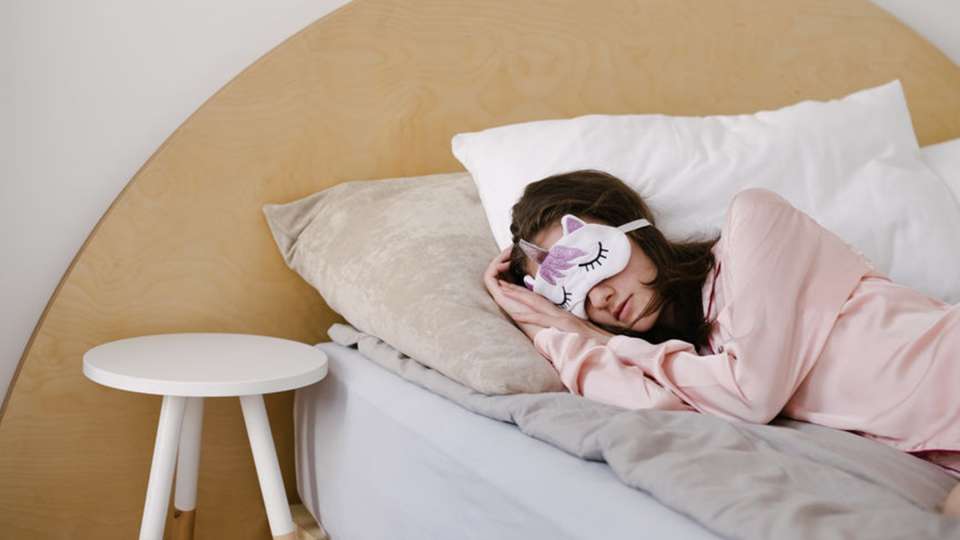
If your typical bedtime routine involves counting sheep — into the thousands — and wishing on a star for just a few hours of blissful slumber, you’re not alone: Around 35 percent of American adults say they get less than seven hours of sleep each night, though seven is the amount recommended by the American Academy of Sleep Medicine.
Sometimes you know exactly what caused your insomnia, be it a stressful day at work, a fight with a partner or too many “Black Mirror” episodes late at night. If your lack of shut-eye is caused by something temporary, it will probably be temporary, too, and a quick fix like taking medication isn’t a problem.
However, if you’ve been having trouble sleeping with no clear cause, it can be incredibly frustrating. You might wish for a miracle cure, but unfortunately that most likely won’t happen.
“Insomnia doesn’t develop overnight and usually is not fixed overnight,” says Dr. Nathaniel Watson, co-director of the UW Medicine Sleep Center at Harborview Medical Center.
If you have chronic insomnia, taking sleep aids may not be helpful long term, because they don’t actually address what’s causing your sleep disturbance. It might take some effort, but there are ways to improve your sleep without relying on medications. Here are Watson’s tips.
Try cognitive behavioral therapy
Cognitive behavioral therapy for insomnia (CBT-I) is a research-backed type of therapy that helps people better understand how their thoughts, emotions and behaviors influence their insomnia and teaches them how to modify their behaviors to achieve better sleep. CBT-I was developed specifically for insomnia, but other forms of CBT are used to treat common mental health conditions like anxiety and depression (which in turn often coincide with insomnia).
Skeptical? It may seem strange to think of going to therapy to fix your sleep issues, but CBTI is helpful for many people.
If you’re interested in trying CBT-I, ask your doctor for a referral to a sleep medicine specialist or make an appointment with a sleep psychologist.
Use an online program
If you’re uncomfortable seeing a therapist in person or if money is an issue, there are online CBT-I programs that cover the same kind of material you would learn during a counseling session, only from the comfort of your home. They tend to be less expensive than in-person therapy and more flexible for busy schedules. “The programs have the potential to help a lot of people because they increase access to care,” Watson says.
Look for programs that were created or advised by doctors or psychologists, like SHUTi, which was created by experts at the University of Virginia, or Sleepio, which is advised by a panel of experts.
Restrict your sleep
If you find yourself lying awake in bed trying to make yourself fall asleep, that action forms an association in your brain between sleeplessness and your bed — which only contributes to insomnia. Instead of staring at the ceiling or trying to count sheep, get up and go to a different space and do an activity that relaxes you, like reading or listening to calming music. The goal is to maximize the amount of time you’re in bed actually sleeping rather than worrying about sleeping.
Practice better sleep hygiene
There are lots of small things you can do to practice better sleep hygiene. Try to go to bed and wake up at the same time, even on weekends (we know, it’s hard). Try to get light exposure in the morning by opening a window or going outside for a short walk. Avoid caffeine late in the day, as well as alcohol, which may make you sleepy when you first drink it but can contribute to insomnia after its effects wear off. Also, if you’re prone to chronic insomnia, try not to nap during the day.
When to use sleep aids
Sleep aids are helpful in short-term situations, such as traveling or having a stressful work week.
If all else fails, it’s OK to use a prescription sleep aid for chronic insomnia, Watson says. Ideally, you wouldn’t rely on medications to get to sleep, but if nothing else is working you might have to. After all, not getting any sleep isn’t an option, and long-term sleep deprivation can contribute to health problems and even suppress your immune system.
Over-the-counter sleep aids shouldn’t be used long term, he says; they aren’t as effective as prescription medications anyway.
Getting more zzzzs
Watson recommends talking with your doctor or a sleep specialist about your specific situation to determine what the best course of action is.
“Your physician will select something that’s best for you depending on what the insomnia complaint is, such as trouble at sleep onset, early morning awakening or something else,” Watson says.
The most important thing is to know that there are options. It may take time and trial and error, but you should be able to find a method that helps you get better sleep — and rest easy knowing it.

 Healthy ideas for your inbox
Healthy ideas for your inbox





